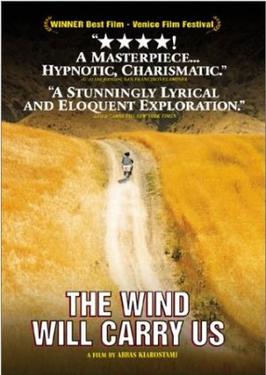The Wind Will Carry Us
(Abbas Kiarostami, 1999)
Irreverent
city engineer Behzad comes to a rural village in Iran to keep vigil for a dying
relative. In the meanwhile the film follows his efforts to fit in with the
local community and how he changes his own attitudes as a result.
This poetic
tale of contemplative scape is about a man returning to the source of humanity.
In a rural village far away from Tehran, the man from the city has to learn to
reconnect with the sufficient simple life of the people.
Director Abbas
Kiarostami shots this film with long takes and camera movements so subtle that
it takes its viewer as a part of the location. Kiarostami’s films have no real
contexts and are told as if we were into the story. He doesn’t rely on much technique
but he uses long scenes of genuine human interactions.
As we follow
Behzad in his routine of taking calls with a cellphone that only works on a
hill where is the cemetery of the village the many repetitions on The Wind Will Carry Us makes us wonder
how life in small villages is not subjected to time and routine. Behzad learns
to live into this particular mindset and felt under the charm of the life.
Unlike his colleagues that are never shown, he gets to be a part of the
ecosystem of the village and lives and breaths the location he is forced to
stay.
His mission
which is never clear, is to do a report on the dying of a old woman. Just like
this is a clash for me as a North American, the culture of the village is a
clash to Behzad and we are linked to his discovery.
This is a
film that sticks with its viewer for a long time and it is meditative without
being arid or overly long. In fact, this might be one of Abbas Kiarostami’s
masterpieces along with Close-Up. It is
memorable and quite beautiful with warm colors and wide screen vast hills. One
particular scene, which explains the title of the film is the milking of a cow
in a dark cavern with a young woman and Behzad reciting a poem as a way to
trade the milk for some knowledge. The trade is not an open trade but we feel
that money is useless when you can have human exchange.
The Wind Will Carry Us proves again that Abbas Kiarostami is
one the most important storyteller of contemporary films.


No comments:
Post a Comment